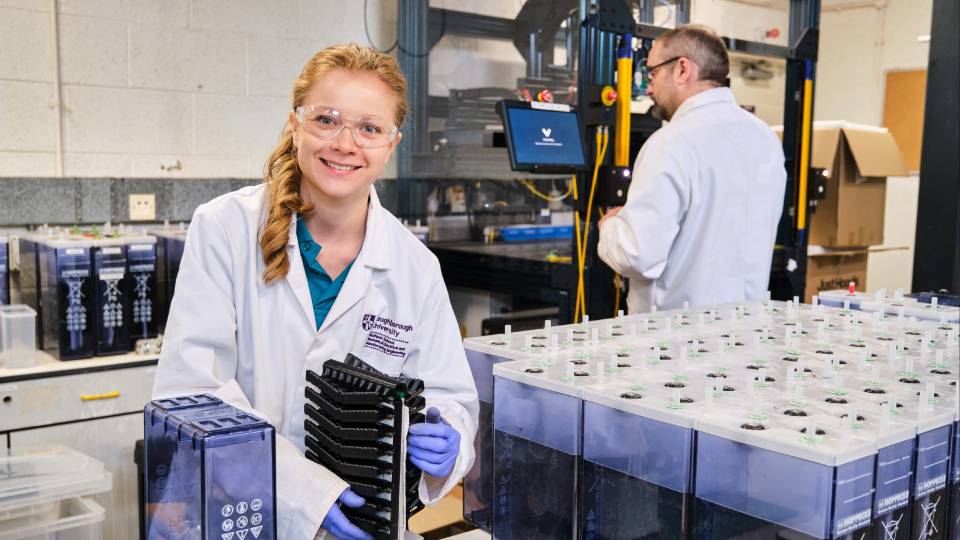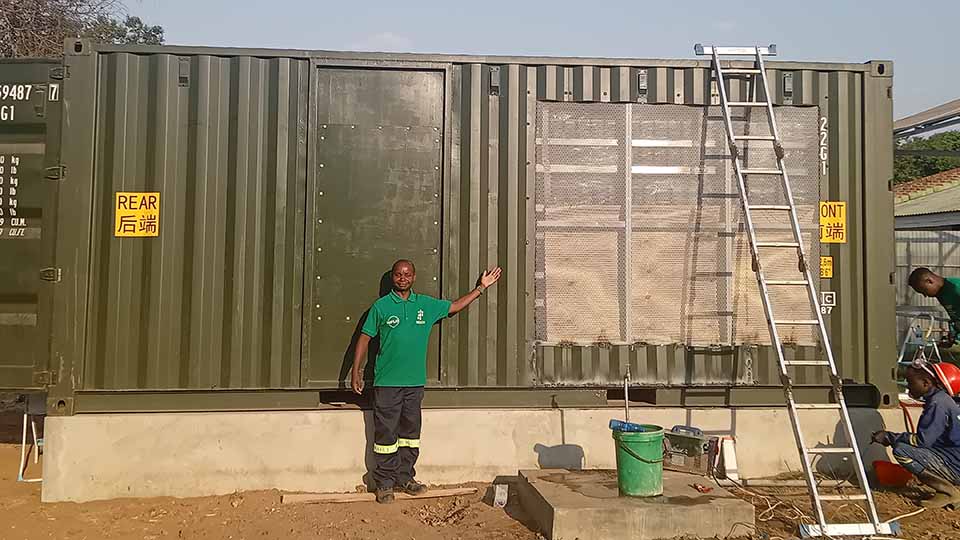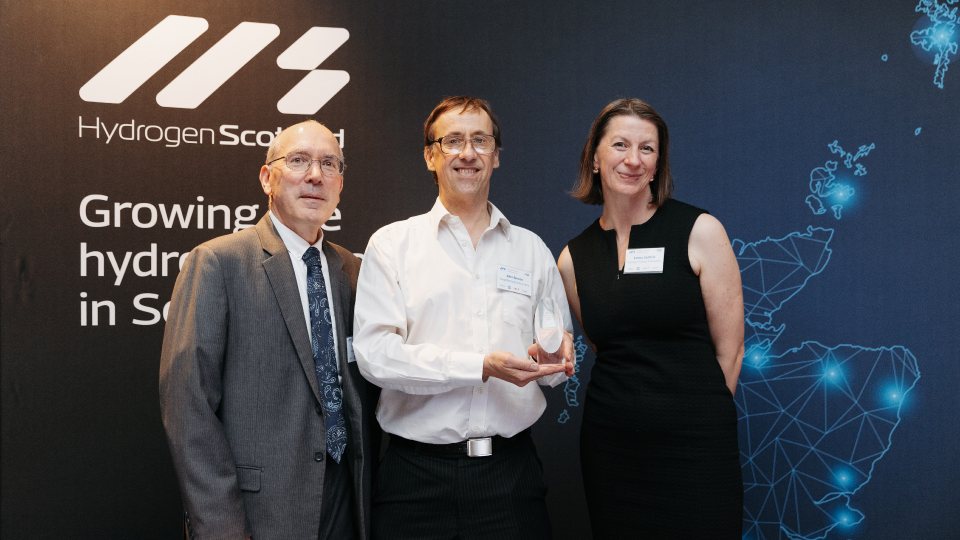The award, presented at the Hydrogen Scotland Conference in Glasgow on 28 October, celebrates the legacy of Stewart Dow, a leading figure at BOC Ltd who championed hydrogen technologies and supported early-stage innovation. After his tragic passing from COVID-19 in April 2020, the annual Stewart Dow Memorial Award was established in his honour. Previous recipients include Andrew Cunningham, CEO of GeoPura, who was recognised in 2024 for pioneering green hydrogen solutions that eliminate fossil fuels from off-grid and backup power systems.
Loughborough’s winning innovation transforms the traditional lead-acid battery into a dual-purpose system that stores renewable energy and produces high-purity green hydrogen. Built using recyclable materials from existing supply chains, the battery-electrolyser offers a scalable, cost-effective solution to global energy and hydrogen production challenges.
The team’s work has sparked international collaboration, partnering with industry leaders such as Hoppecke, Hollingsworth & Vose, Monbat, and Fibretech, as well as non-governmental organisations and academic institutions worldwide.
The first system was tested in Loughborough in July 2025, achieving 99% hydrogen purity. The technology is being scaled at Loughborough University Science and Enterprise Park, as part of the Zero Carbon Innovation Centre, supported by £0.95m seed funding from East Midlands Freeport (EMF).

Internationally, the system is being deployed at Mwanza District Hospital in Malawi, where it provides reliable solar energy for lighting, refrigeration, and medical equipment, funded by the £1.5M Innovate UK MESCH project. It has recently arrived in Malawi and is being commissioned.

A further unit is ready for shipping to Zambia and is undergoing extensive control system testing in Loughborough, as part of €10m Horizon Europe LoCEL-H2 project.
Two more units are under construction, including the EMF-funded demonstrator to be located at Loughborough.
Beyond technical innovation, the team has actively engaged the public through science festivals and exhibitions, inspiring future engineers and promoting hydrogen as a safe, sustainable energy source.
Collecting the award on behalf of the team at the Hydrogen Scotland Conference, Research Associate Dr John Barton said: “It is such an honour for our work to be recognised in memory of Stewart Dow, who was a driving force behind the commercialisation of hydrogen fuel cells. Just four years ago, we were conducting lab experiments on a cell measuring only 5cm x 5cm. Today, we’re building full-scale systems in shipping containers, each housing 160 cells and capable of producing 10.42 kWh.”
Dr Emma Guthrie, CEO of the Hydrogen Energy Association (HEA), said: “It was my great honour to present the Stewart Dow Award on behalf of the HEA at this year’s Hydrogen Scotland Conference. Amongst a strong field of candidates, Loughborough University’s battery-electrolyser team was a very deserving winner, with a piece of work that demonstrates excellent capability within the UK academic sector, showing impact beyond our borders. The innovation associated with this work truly reflects the spirit in which Stewart contributed to the sector.”
Nigel Holmes, CEO of Hydrogen Scotland, added: “I am delighted that the achievements of partnership working by the Loughborough University Battery-Electrolyser team are being deployed in Malawi using an innovative combination of pragmatic engineering solutions for hydrogen production, storage, and use. This is the 20th year of the Scotland-Malawi partnership, and we look forward to hearing more about how this exciting project is supporting local communities.”
